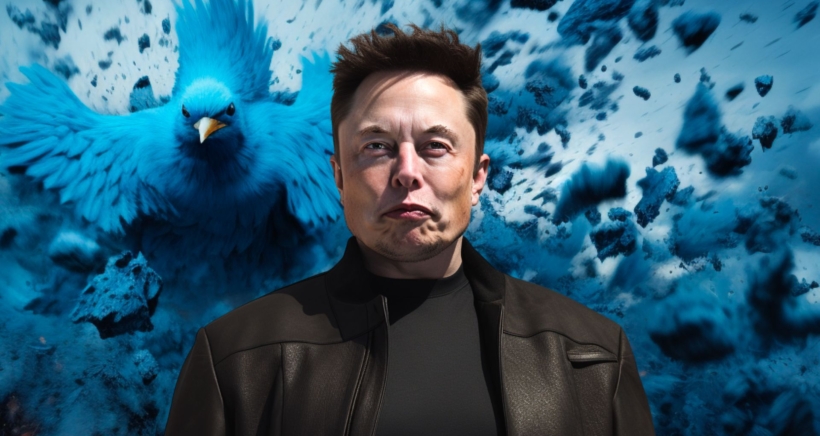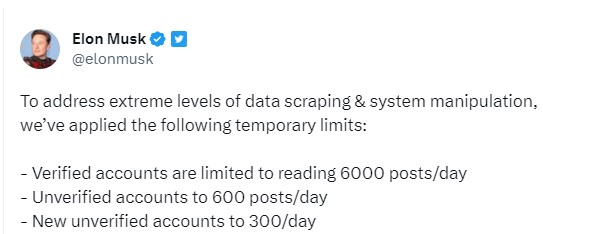Twitter has rolled out another significant change that dramatically affects its usage. The social media giant has started to block content for users who aren’t logged in (or registered), meaning people without a Twitter account can no longer see posts or other users’ accounts—essentially, all the reasons for primarily using the platform.
Elon Musk, who purchased the popular social network for a staggering amount of money last year, justifies this move by saying that it is aimed at preventing the mass data harvesting by companies. Furthermore, there are also limits introduced on the number of posts users can read.
Major Transformation Since Musk’s Takeover
It’s not surprising that Twitter has been undergoing gradual changes since Musk’s arrival. After all, his goal was to transform Twitter into a profitable company, which has been felt by both employees who were laid off en masse, and users who are finding Twitter less accessible unless they subscribe monthly. However, this sudden change will be significantly felt by many.
Previously, it was possible and quite standard to view public profiles of users without being logged into an account. In fact, you didn’t even need an account if you didn’t want to interact with tweets. Perhaps, for some, this was enough as they used Twitter for the latest information. But Twitter has now banned this ability. Clicking a link directed to Twitter now prompts you to register or log in.
Consequently, one of the reasons why Twitter was so useful—sharing—is now fading away. Not everyone has a Twitter account, but they could spread news among others, fulfilling the crucial essence of social media, which is the swift sharing of information. Users also report that previews are being blocked in search engines or on other platforms. Linking has abruptly stopped functioning.
Controversies Around the Change
Unsurprisingly, debates around this change have ignited—where else but on Twitter itself. Musk has also responded to some, clarifying that it’s not a mistake but a deliberate step: “Hundreds of organizations were extremely aggressively gathering data from Twitter, to the extent that it affected the user experience. What should we do to stop this? I’m open to ideas,” he wrote.
He responded directly to a post by Tim Sweeney, founder and CEO of videogame development company Epic Games (creators of Fortnite), who in his tweet mentioned how the “internet today is broken due to various restrictions and ads”. He also brought up the new block on unregistered Twitter users. This decision, however, seems quite peculiar given what Musk initiated last year.
In 2022, Musk hired software engineer George Hotz to fix the search function and get rid of the login prompt, which prevents unregistered users from browsing. But Hotz resigned before even half of his twelve-week internship, stating that he didn’t think he “could have any real impact there”. Then, in April of this year, Twitter entirely abolished the search function for unregistered users.
Limits on Viewing Posts
It’s crucial to mention that Elon Musk, whose role as CEO was to be replaced by a new executive director in these days, considers this change a “temporary emergency measure”, so it can be expected that it will continue to evolve. However, he recently announced on Twitter the implementation of a system of limits on reading posts, which he also describes as “temporary”, and is meant to combat the aforementioned data harvesting.
In practice, this means that verified accounts will be allowed to read a maximum of six thousand posts daily, while unverified accounts will be limited to “only” six hundred—a rough estimate equates to about fifteen to twenty minutes of browsing Twitter in the mobile app. Newcomers to Twitter will be limited to three hundred tweets daily.

